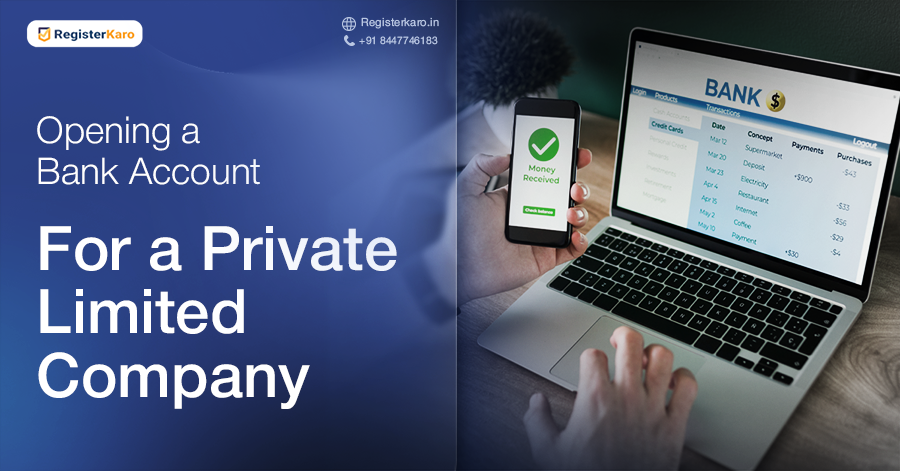
In the finance and accounting sector, online solutions are becoming more and more crucial for financial monitoring, employee training, and labour management. Managers, accountants, and company owners commonly utilise accounting software to streamline their operations.For certified public accountants (CPAs), who assess data, statistics, and transactions to ensure the accuracy and correctness of their work, this program is essential. But with so many options, it might be challenging to select the best solution for your business. The software you choose should represent the scope and scale of your company. With more options than ever before, there is a solution to fit any budget. To assist you in making the best choice, we will list the best accounting software options to meet a variety of business needs.
What is accounting software, and why is it needed?
Accounting software is a vital tool for updating a business’s financial management. These systems assist with bookkeeping, financial transaction administration, and the production of comprehensive financial reports. The software chosen by different accounting companies and enterprises may be influenced by their unique needs.
Accounting software, which revolutionises financial management practices and encourages growth, may be extremely beneficial to businesses. By using the capabilities of an accounting system, businesses may enhance their financial management practices, make informed decisions, and encourage development in a market that is becoming increasingly competitive.
The advantages of accounting software
Automation Reduces Costs and Saves Time
Accounting software makes it feasible to automate repetitive and time-consuming tasks including data entry, invoice processing, and financial reporting. Employees may focus on more strategic duties as a result of this automation, which also saves a significant amount of time by minimising physical work. Additionally, by streamlining their procedures, businesses may cut costs by lowering the need for outsourcing or additional personnel.
More Accuracy and Fewer Human Errors
In financial operations, human error might have major consequences. One of the most useful aspects of accounting software is its capacity to minimise mistakes through computation automation, consistent data entering, and discrepancy identification. With access to reliable and accurate data, businesses are better able to make decisions, maintain the integrity of financial records, and build stakeholder confidence.
Enhanced Financial Visibility and Decision-Making
Real-time access to financial data via an accounting system provides businesses with the most up-to-date knowledge of their financial status. Comprehensive reports and dashboards facilitate data-driven decision-making by enabling efficient analysis of revenue, expenses, and profitability. This visibility helps businesses identify trends, take advantage of opportunities, and promptly address financial challenges.
Increased Productivity and Streamlined Financial Processes
Accounting software’s capabilities, such as expenditure tracking, automated invoicing, and bank reconciliations, streamline financial processes. Through this streamlining, bottlenecks are eliminated, human work is reduced, and operational efficiency is raised. Eliminating administrative duties and physical labour can help businesses focus on important objectives and manage resources more effectively.
Compliance with Accounting Regulations and Guidelines
Accounting software helps businesses comply with the law, which is one of its advantages. Accounting software helps businesses follow financial reporting requirements, accounting standards, and tax rules. The application ensures accurate transaction recording, assists with tax calculations and filings, and generates reports that adhere to regulatory requirements. By being compliant, businesses may avoid difficulty and maintain their strong financial position.
Enhanced collaboration and communication
Collaboration across teams such as finance, operations, and management is facilitated by accounting software. Centralised access to financial data promotes efficiency and transparency. Teams may work together on budgets, financial goals, and predictions, fostering a collaborative environment that supports organisational success.
Considerations for Accounting Software Selection
Accounting software is crucial for businesses to ensure accuracy, save time and money, provide real-time financial information, ensure compliance, speed up processes, and promote cooperation. Using the benefits of accounting software, businesses may enhance their financial management processes, make data-driven decisions, and achieve long-term success in today’s competitive corporate environment.
Businesses take into account a number of crucial factors when selecting an accounting software solution. Let us look at these important elements:
Scale and Complexity of Businesses
Consider the size and complexity of your business’s operations. While larger businesses with complex financial operations may require advanced functionality and scalability, smaller organisations may require basic accounting features. As a result, you need to thoroughly evaluate your particular needs and choose software that is appropriate for the size and complexity of your business.
Economic and Financial Aspects
Budgeting is a crucial factor to take into account when choosing an accounting system. When buying accounting software, you have to account for both upfront and ongoing costs, including maintenance or subscription fees. Compare the features, cost structures, and value offered by different software providers to choose a solution that fits your budget and provides the capabilities you need.
Industry-Specific Requirements
Businesses with specific accounting needs include those in the professional services industry (project accounting) and retail (inventory management). Think about if the software offers features specific to your company or customisation options to satisfy these demands and ensure compliance with relevant regulations when choosing the finest accounting solution.
Simplicity of Use and Implementation
Other important factors include simplicity of use and execution. Look for user-friendly interfaces, comprehensive training materials, and customer support to ensure a smooth transition. Consider how quickly your employees can learn the program and adapt to it without significantly disrupting your business operations.
Connecting to Existing Software Frameworks
Smooth integration eliminates data silos, increases overall operational efficiency, and streamlines processes by allowing data to travel between different systems. You must thus assess the interoperability and integration capabilities of the accounting software. Make sure they work with your existing systems, such as your CRM and ERP software.
Opportunities for Future Growth and Scalability
To get the most out of an accounting program, you must select one that can grow with your business. Consider how scalable it is to handle greater data volumes and more users. Evaluate the program’s capacity to manage future demands, such as entering new markets or running operations in many locations. This ensures your accounting software will remain a viable long-term solution as your business grows.
The Top 10 Accounting Programs of 2024 for Accountants
Accounting software reduces the likelihood of errors in financial records, which is why certified public accountants utilise it. These solutions help accountants by ensuring the accuracy of data. Let us look at the 10 best accounting software packages that accountants will like in 2024 so that you may effectively streamline your financial tasks.
1. Xero
For bookkeepers, accountants, and small businesses, Xero is a well-liked cloud-based accounting tool. The New Zealand-based company that developed Xero makes financial administration simpler with its powerful features and user-friendly interface. Because it facilitates cross-device collaboration and real-time financial tracking, this software is the ideal solution for today’s accounting needs.
Since it can automate routine tasks and provides a comprehensive suite of solutions for secure and efficient financial data management, Xero is particularly helpful for accountants.
The key characteristics of Xero
- It makes it possible for foreign transactions to be handled smoothly.
- In order to speed up the invoicing process, use straightforward management solutions.
- keeps financial documents organised and accessible.
- Provides comprehensive details about the business’s financial operations.
- Offers current, secure bank transaction updates.
- Connects to over 1,000 apps to improve functionality.
- Modify financial reporting to meet specific business needs.
2. Quickbooks
QuickBooks is an all-in-one cloud-based accounting application. It is widely used by small to medium-sized businesses, independent contractors, and a range of industries, including retail, restaurants, and organisations. This platform simplifies financial administration with features that encourage real-time access, enhanced reporting accuracy, and productive cooperation. QuickBooks helps accountants simplify complex financial processes by using automation and real-time data, which improves client financial management accuracy and efficiency.
Key Elements of QuickBooks
- Oversees transactions in several foreign currencies.
- Utilise customisable templates to streamline the billing process.
- Furnishes up-to-date financial information.
- Monitors and classifies business expenses
- Processing payroll with the option of same-day direct contributions
- Connects to hundreds of apps, including banking and credit card apps.
- Ensures the safe hosting and exchange of financial data.
3. FreshBooks
FreshBooks is a dynamic cloud-based accounting tool designed for small and medium-sized businesses, freelancers, and self-employed professionals. It was developed by 2ndsite Inc. and offers a wide range of tools to manage financial activities effortlessly. FreshBooks is an outstanding option for service-oriented businesses that require efficient financial and project administration because of its user-friendly design and strong features, which simplify everyday tasks.
FreshBooks is incredibly useful for accountants who manage client funds in service-oriented industries. Because of its streamlined invoicing, payment processing, and project accounting features, accountants can efficiently maintain accurate books and provide strategic financial insights.
Key Components of FreshBooks
- Automated invoicing simplifies the process of creating and distributing bills.
- Easily tracks and categorises business expenses
- Mileage tracking facilitates automated mileage logging for expense reporting.
- Enables safe and easy financial transactions.
- Improves international operations by handling multi-currency transactions.
- Ensures compliance with laws like GDPR and PCI.
- It makes it simple to incorporate time monitoring into bills.
4. Zoho Books
The best corporate accounting software is Zoho Books, which is particularly helpful for accountants, freelancers, and small and medium-sized businesses. Because it offers a forever-free plan for businesses making less than $50,000 annually, it is a good option for startups and small enterprises. By adopting Zoho Books’ extensive feature set, which includes G Suite, Slack, and Evernote, accountants can focus more on strategic financial management while streamlining routine accounting tasks.
Zoho Books is especially useful for accountants because of its end-to-end accounting features, which ensure accuracy and compliance. The amount of time spent on tedious tasks is further reduced by its automated functions. This makes it possible for accountants to successfully and effectively manage their clients’ financial concerns.
Key Components of Zoho Books
- Automated invoicing simplifies the process of creating and distributing bills.
- Keeps meticulous records on business expenditures.
- Creates comprehensive financial reports for assessment.
- Handles transactions in a variety of currencies.
- Complies with GST and GDPR rules
- Provides mobile accounting applications for on-the-go use.
- Uses Slack and Zapier to seamlessly interface with other apps.
5. Oracle NetSuite
Oracle NetSuite is a well-known ERP-based accounting application in the USA. NetSuite, which is renowned for integrating financial operations with essential company tasks, provides accountants with powerful tools to increase productivity through the automation of time-consuming tasks. For accountants who want to optimize back-office procedures and have instant access to financial data so they can focus on strategic duties that impact the company’s bottom line, this tool is ideal.
Oracle NetSuite is highly beneficial for accountants because of its broad feature set, which includes advanced financial monitoring, reporting, and compliance management. This ensures accountants may keep up their accurate and productive work.
Key Components of Oracle NetSuite
- Give brief details regarding the financial performance.
- Streamlines the accounts payable and receivable process.
- Facilitates the administration of audits and compliance.
- Offers personalised viewpoints for better money management.
- Connects finance, sales, service, and more.
- Promotes the growth of startups into large enterprises.
6. Sage
Sage offers specific solutions for small businesses and accountants, making it the best corporate accounting software. It does an excellent job of providing a platform that is accessible, reliable, and safe worldwide. Sage is well known for being flexible, allowing adaptation to meet each user’s specific needs. Because of this, it is a fantastic choice for businesses looking for trustworthy financial tools and accountants needing precise and efficient resource management. Accountants benefit greatly from Sage’s comprehensive financial tools, which make comprehensive reporting and compliance easier. Because of its capacity to interact with other systems, such as Office 365, which increases workflow efficiency, the platform is an essential tool for accountants and other financial professionals.
Essential Elements of Sage
- Financial transactions and record-keeping are simplified by automated bank reconciliations.
- Helps maintain and monitor financial health
- Simplifies project cost tracking and invoicing
- Provide comprehensive details on business finances.
- Permits transactions in several currencies.
- Guarantees data safety and privacy.
7. Wave
Wave is a free cloud-based accounting software for independent contractors, small businesses, and solopreneurs. This personal accounting software, which is renowned for its ease of use and ability to manage several organisations with a single login, was created for accountants who deal with a diverse clientele. By offering the required resources for financial reporting, expenditure tracking, and invoicing—all accessible from anywhere via its mobile app—Wave simplifies accounting.
Key Components of Wave
- Streamline invoicing and efficiently monitor expenses
- Easily manage your calendar and timetable.
- Pay using the software itself.
- Integrated payroll processing tools (available in premium subscriptions)
- Manage several business accounts with a single login.
- Tools for managing marketing and consumer communications
8. Odoo Accounting
Accounting software like Odoo is a versatile and user-friendly tool for small businesses searching for free accounting software and a practical way to manage their financial operations. Odoo, an open-source suite of business applications, provides a comprehensive accounting system that seamlessly integrates with other company functions such as marketing, sales, inventory, and human resources.
This accounting software designed for accountants that work with small to medium-sized businesses because of its user-friendliness and integration capabilities. Because of its AI-powered features, which increase accuracy and make a paperless approach easier, it is a priceless tool for modern accounting professionals.
Key Components of Odoo Accounting
- An intelligent reconciliation tool automatically reconciled transactions to save time.
- AI-powered invoice digitization reduces mistakes in financial reports.
- The administration of foreign business operations is made easier by support for several currencies.
- Use any device to access necessary documents.
- This mechanism of this software aligns with accountant mind, simplifying data management and client communications.
9. SAP Financials
SAP Financials is a robust online accounting application that was developed with careful consideration for corporate needs. SAP offers comprehensive capabilities for basic accounting and finance administration, payroll, fixed assets, and regulatory compliance as part of its extended ERP solutions to satisfy the unique requirements of accountants and financial professionals.
SAP Financials is a feature-rich accounting program made for accountants that makes complex accounting tasks easier to handle and easily connects with larger enterprise resource planning systems.
Key Components of SAP Finance
- Streamlines budgetary planning and monitoring
- Tracks and assesses cash inflows and outflows.
- Maintains all financial documents organised and secure.
- Predicts future financial requirements with accuracy
- Competently manages the logistics of distribution
- Keeps track of vendor and consumer information
- Integrates email correspondence to guarantee seamless operations.
10. Accounting Software for TrulySmall
TrulySmall Accounting is intended for small businesses, independent contractors, freelancers, and owner-operators. This technology streamlines and automates accounting tasks using an easy-to-use interface that resembles an email inbox. It is designed to efficiently manage bookkeeping requirements and streamline financial procedures for small business owners and their accountants.
TrulySmall Accounting is especially helpful for accountants who work with small businesses since it places a strong emphasis on automating repetitive accounting tasks and cutting down on the time spent on manual data entry. This gives more time for more smart financial guidance and analysis.
The key characteristics of TrulySmall Accounting
- Facilitates the management of multi-currency transactions.
- Keeps up-to-date financial records
- Financial tasks are organised in a way that makes them easy to utilise.
- Ensures accuracy and conformity to accounting regulations.
- Allows for easy tracking and reconciliation of cash flow.
- Varies the user experience to satisfy certain business needs.
Selecting the Best Accounting Program for Your Company
Budgetary restrictions, industry-specific requirements, and the program’s capacity to manage both simple and complex accounting duties are all important factors to take into account when choosing accounting software for small firms. Key factors include interoperability with current systems for simplified operations, ease of use for effective daily administration, and dependable customer assistance for any technical questions. Selecting the appropriate software guarantees that you can provide your clients scalable solutions and precise financial management.




